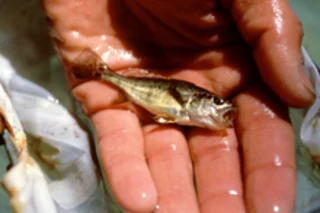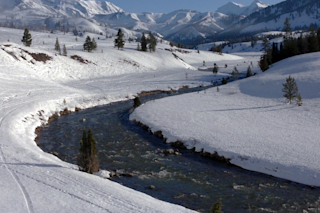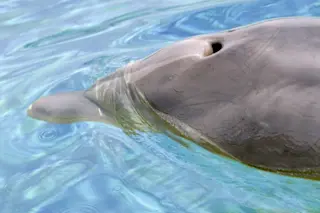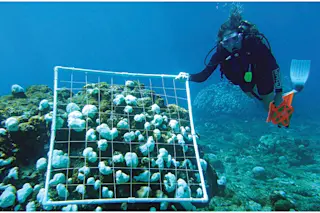Global warming is expected to cause such alarming climate disruptions that talk of hurricanes and heat waves can overshadow another drastic process at work: Burning fossil fuels and otherwise producing excess carbon dioxide makes oceans and other bodies of water more acidic, as the water absorbs the gas. This acidification can change a fish's physiology in ways that were previously unpredicted and could affect the fish's survival, according to a study in Science. Scientists raised groups of white sea bass in water of varying concentrations of carbon dioxide. They found that the fish in the most highly acidified water had the largest rock-shaped ear bones, known in biology parlance at otoliths. That contradicts what the researchers had hypothesized:
The ear structure in fish, known as an otolith, is made up of minerals. Scientists knew that increasing carbon dioxide in the oceans -- absorbed from the atmosphere -- is making the ...














